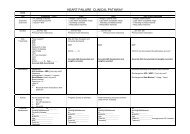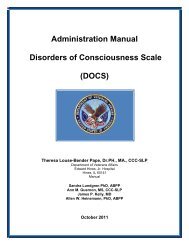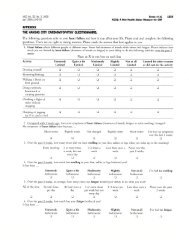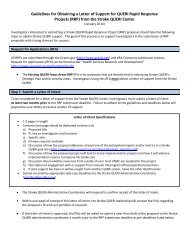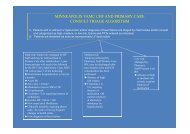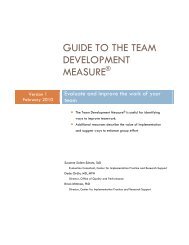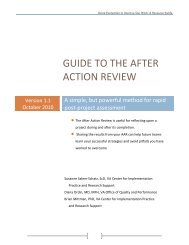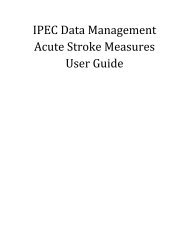The Veteran Supported Education Service Treatment Manual: VetSEd
The Veteran Supported Education Service Treatment Manual: VetSEd
The Veteran Supported Education Service Treatment Manual: VetSEd
You also want an ePaper? Increase the reach of your titles
YUMPU automatically turns print PDFs into web optimized ePapers that Google loves.
As you are likely to have <strong>Veteran</strong>s on your <strong>VetSEd</strong> caseloads who are also receiving VA<br />
Substance Abuse and Mental Health <strong>Treatment</strong> <strong>Service</strong>s, you should be aware of the<br />
philosophies and approaches used to treat co-occurring disorders. This is particularly<br />
important when working with <strong>Veteran</strong>s who have serious mental illnesses (SMI), as<br />
substance abuse is the most common co-occurring disorder among individuals with SMI<br />
(Brunette, Mueser & Drake, 2004; Adams et al, 2007).<br />
<strong>Treatment</strong> Philosophy and Approaches<br />
For the past 30 years, addictions researchers and mental health treatment providers have<br />
been developing and testing various therapeutic approaches and clinical interventions to<br />
better assist individuals with mental illness, substance abuse, and COD (Smelson et al.,<br />
2011). As a peer <strong>VetSEd</strong> provider, it is very likely that you will interact with <strong>Veteran</strong>s<br />
who have a mental illness, struggle with substance abuse, or both. <strong>The</strong>refore, in the<br />
remainder of this section, we will place a great deal of focus on addressing COD among<br />
<strong>Veteran</strong>s participating in SEd programs. Moreover, you may find some of the<br />
motivational approaches included here to be useful in your work linking <strong>Veteran</strong>s to<br />
educational programs.<br />
When working with <strong>Veteran</strong>s with a substance abuse history or current problem, you are<br />
strongly encouraged to embrace a harm reduction approach in addressing substance<br />
abuse. A harm reduction approach is one that is based on the recovery principles, most<br />
notably the principles of self-direction and individualized care. While it may be tempting<br />
as a peer <strong>VetSEd</strong> provider to tell <strong>Veteran</strong>s who are engaging in illicit substance use that<br />
they simply need to quit or get help if they want to do well in school, such a statement<br />
from you would likely be perceived as judgmentmetal by the <strong>Veteran</strong>. However, using a<br />
harm reduction philosophy, you might use Motivational Interviewing (MI) strategies to<br />
engage <strong>Veteran</strong>s in conversations about ways they might be able to reduce the impact of<br />
their substance use on their educational goals. <strong>The</strong> strategies listed below can help you<br />
minimize judgment and maximize the <strong>Veteran</strong>‘s engagement with <strong>VetSEd</strong>:<br />
Try to understand where the <strong>Veteran</strong> is coming from and their own experience of<br />
substance use. You can do this by asking open-ended questions and asking the<br />
<strong>Veteran</strong> if they believe their substance use is affecting any important areas of their<br />
lives.<br />
Use Motivational Interviewing techniques to determine how important it is for a<br />
<strong>Veteran</strong> to decrease or get a better handle on their substance use. If a <strong>Veteran</strong><br />
states mid- to-high importance, it is good to follow-up with a question about their<br />
confidence with meeting their short-term substance use reduction goal.<br />
103 | P a g e



